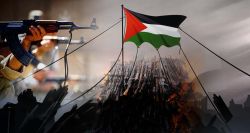
Palestinian Weapons Test Lebanon’s Credibility on Disarmament and Security
Johnny Kortbawi 2025-10-31 09:00 - Reading : 2 minute(s)
Lebanon Hezbollah Palestinian camps United States
The killing of Elio Abu Hanna by Palestinian gunmen in Beirut’s Shatila refugee camp this past weekend is not just another crime. His murder is a serious test for a Lebanese government dragging its feet on its commitment to disarm Hezbollah and other militias. There is no reason the Shatila refugee camp should remain off-limits to the ...
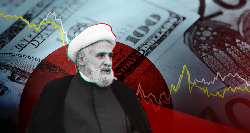
Sheikh Naim’s Clash with the Formal Economy
Johnny Kortbawi 2025-10-24 15:00 - Reading : 2 minute(s)
Nawaf Salam Banks Banque du Liban Hezbollah Naim Qassem Cash
One of Hezbollah’s most pressing challenges, beyond its ongoing military decline and Israel’s persistent targeting of its depots and stockpiles, is its financial crisis. The depletion of resources has left the group unable to engage with its population as it once did to sustain its alternative economy. A clear example is Sheikh Naim ...

The Soft Narrative of Hezbollah’s Terror
Johnny Kortbawi 2025-10-21 09:00 - Reading : 3 minute(s)
Every era has its instruments of propaganda — voices that amplify power, shaping history, politics, and identity to advance agendas far removed from democratic principles and the natural order of events. Since the assassination of Hezbollah’s former Secretary-General Hassan Nasrallah, and after a period of denial and confusion within the ...
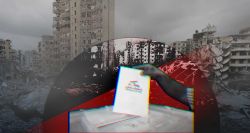
The Elections May Not Be the Problem, but They Are Certainly Not the Solution
Johnny Kortbawi 2025-10-17 10:00 - Reading : 3 minute(s)
Nawaf Salam Amal Hezbollah Elections Nabih Berri
The upcoming parliamentary elections are highly important, marking a defining moment in Lebanon’s history. Since independence, the country has held many elections, each shaped by its own circumstances. Some of these elections have stood out as true turning points, reshaping Lebanese politics and strengthening the balance of power in the ...
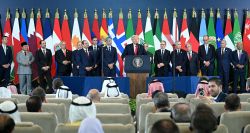
Saluting Those Who Stand for Peace
Johnny Kortbawi 2025-10-14 14:40 - Reading : 3 minute(s)
Nawaf Salam Lebanon Hamas Hezbollah Camp David Donald Trump Gaza Sharm al-Sheikh
The latest events in Sharm al-Sheikh echo the spirit of the Camp David Accords nearly 50 years ago, a historic turning point that reshaped the trajectory of the Arab world. In the aftermath of the 1967 Naksa (the defeat) and amid shifting regional realities, Egypt and Jordan would later move toward peace with Israel. At that time, Egypt commanded ...
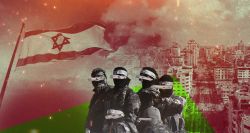
What Lies Beyond, and Beyond Hamas
Johnny Kortbawi 2025-10-10 13:55 - Reading : 2 minute(s)
Nawaf Salam Lebanon Hezbollah Hamas
Both sides in Palestine can claim a form of victory from the negotiations that ended the war in Gaza. Palestinians may see their success in the delivery of humanitarian aid, the release of prisoners, the halt of attacks on the Strip and the prevention of plans mentioned in some statements to depopulate Gaza. Meanwhile, Israelis may view their main ...
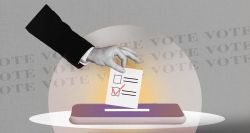
Who Gains from Delaying the Elections?
Johnny Kortbawi 2025-10-07 09:00 - Reading : 3 minute(s)
Lebanon’s parliamentary elections, scheduled for spring 2026, face an unprecedented delay as political actors across the sectarian spectrum weigh their strategic interests. For the first time in the country’s history, postponing the elections appears to be a shared goal. All parties are unprepared, whether directly or indirectly, to hold the ...
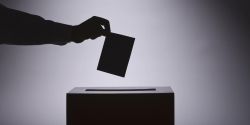
Why Did the Government Overlook the Report on District 16?
Johnny Kortbawi 2025-10-03 13:20 - Reading : 3 minute(s)
Lebanon elections parliament voting law District 16
Different considerations govern expatriate voting, an issue on which Speaker Nabih Berri was adamant, declaring that “Bible and Quran precede electoral law,” meaning the article in question will not be amended under any circumstances. This leaves us with two possibilities: either proceed with the law as it stands with District 16 included in ...

Contours of Sanctification and Demonization
Johnny Kortbawi 2025-09-30 09:00 - Reading : 2 minute(s)
Lebanon Hezbollah Hassan Nasrallah
There is no doubt that emotions among Hezbollah’s supporters remain raw on the first anniversary of the assassination of the militia’s Secretary-General, Hassan Nasrallah. He was regarded as both an inspiration and a leader, and it’s not surprising that many in the movement’s base approached him in ways that verge on sanctification or even ...
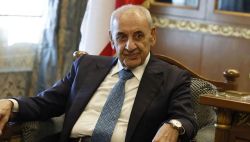
Berri: No Cause for Concern...
Johnny Kortbawi 2025-09-26 09:30 - Reading : 2 minute(s)
Lebanon Hezbollah Nabih Berri Speaker Shia
Parliament Speaker Nabih Berri speaks only when circumstances demand it or when a message must be conveyed, whether on domestic or external fronts. He has mastered the art of choosing his words, his audience, and the medium through which they are delivered. This is the result of forty years of political shrewdness, which has taught him how to ...

Between the State and the Rock…
Johnny Kortbawi 2025-09-23 16:00 - Reading : 2 minute(s)
Hassan Nasrallah Baalbeck Banks Free Patriotic Movement Hezbollah
In Lebanon, even rocks can spark existential crises. The Raoucheh Rock has become the focus of a growing political and public controversy after plans emerged to project an image of Hezbollah’s former Secretary-General Hassan Nasrallah, alongside Hashem Safieddine, onto the rock to mark the anniversary of their death last year. What began as a ...

Of Stones and Rocks
Johnny Kortbawi 2025-09-19 11:10 - Reading : 2 minute(s)
Lebanon Hassan Nasrallah Hezbollah Raoucheh
The Raouche Rock crisis has no real bearing on Lebanon’s political life. Yet, it does reveal the deep divide in how political figures are perceived: either as sacred icons or as demons. Hezbollah’s fabricated controversy over projecting the images of Hassan Nasrallah and Hashem Safieddine on the rock to mark their assassination is nothing more ...

The Surge of Pages and Rumors
Johnny Kortbawi 2025-09-16 12:30 - Reading : 3 minute(s)
In recent months, pages linked to the Axis of Resistance have grown on social media like fungi. There is no longer any way to keep track of them: every day or two, a new page appears under a different name but with the same content promoting the axis’s narrative in all its domestic and regional dimensions. These are not mere social media ...
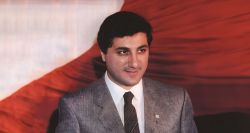
Revisiting History in the Lebanese Mind
Johnny Kortbawi 2025-09-12 11:25 - Reading : 3 minute(s)
Nawaf Salam Lebanon Syria Palestinians Bachir Gemayel
In just a few hours, Lebanon will mark the 43rd anniversary of the assassination of President Bachir Gemayel—an event that altered the course of the Lebanese Civil War, establishing a new center of gravity within the conflict. Bachir’s election embodied the balance of regional and international power in Lebanon, from the dynamics of ...

When Immorality Becomes a Profession
Johnny Kortbawi 2025-09-09 11:00 - Reading : 2 minute(s)
There is no precise or scientific description of the moral collapse Lebanon has been experiencing for years. Yet in recent weeks, this decline has taken on unprecedented forms, with public discourse sinking to new lows. The Lebanese Shias are enduring hardships at every level. What is even more troubling is that some deliberately seek to ...
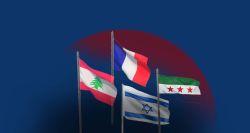
The Guardianship Syndrome
Johnny Kortbawi 2025-09-05 15:35 - Reading : 2 minute(s)
Nawaf Salam Lebanon Hezbollah Middle East Syria France
Lebanon’s modern history has been shaped by successive forms of foreign tutelage, beginning with the proclamation of Greater Lebanon 105 years ago. Over the course of half a century, the country experienced various mandates and occupations: 23 years under the French Mandate, 30 years under Syrian domination, alongside repeated Israeli invasions ...
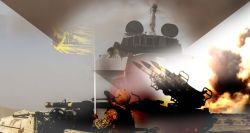
Hezbollah’s Rickety Rifles: From Strength to Mockery
Johnny Kortbawi 2025-09-02 17:10 - Reading : 2 minute(s)
Nawaf Salam Lebanon Hezbollah Hassan Nasrallah weapons
In the wake of the recent war with Israel, Hezbollah has entered a new phase, prompting a shift in many of its long-held convictions, most notably its attachment to weapons as a bargaining chip. What was once upheld as a symbol of dignity and pride, described by former Secretary-General Hassan Nasrallah as a divine mission, is now the subject of ...
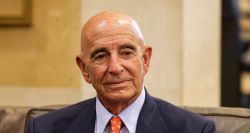
Perhaps What Is Meant Is the Collapse of Deadlines…
Johnny Kortbawi 2025-08-30 14:50 - Reading : 2 minute(s)
Nawaf Salam Lebanon Benjamin Netanyahu Tom Barrack Syria
Tom Barrack has made more than one misstep – mistakes that some might even consider political sins. The issue is not simply what he told journalists at Baabda Palace, but the deeper political and strategic implications of his words. At a time when the government is moving toward the point of no return on Barrack’s proposal, and after failing ...
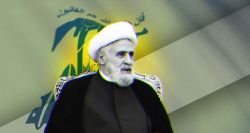
Naim Qassem: Pro-Sovereignty Reformist
Johnny Kortbawi 2025-08-26 16:00 - Reading : 2 minute(s)
Nawaf Salam Hezbollah Lebanese Army naim qassem
At its core, the issue is that Hezbollah’s Secretary-General, Naim Qassem, has been seeking ways to convince his audience that handing over the group’s weapons to the state has become inevitable, particularly in the wake of the party’s military and political setbacks suffered over the past year. Qassem has repeatedly approached ...
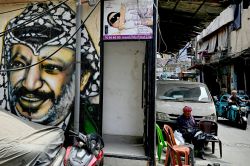
The Arrogance of Wasted Time
Johnny Kortbawi 2025-08-22 18:00 - Reading : 3 minute(s)
Nawaf Salam Hezbollah Lebanese Army Washington Palestinian camps
The handover of Palestinian weapons from the camps to the Lebanese state marks the beginning of a historic shift: the effort to confine all arms within Lebanon and close a chapter that has weighed on the country for nearly six decades – the use of Lebanese soil as a battlefield for the Palestinian-Israeli conflict. It is evident to all regional ...

A Negotiating Margin Out of Reach
Johnny Kortbawi 2025-08-19 14:30 - Reading : 2 minute(s)
Nawaf Salam Hezbollah United Nations Tom Barrack Morgan Ortagus
Lebanon still has much to accomplish. Despite the government’s declarations, practical steps remain limited, leaving doubts about whether the country is honoring its commitments in the eyes of the international community. This was the core message conveyed during Tom Barrack and Morgan Ortagus’ meetings with Lebanese officials. The points ...
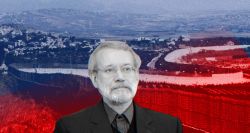
Larijani and the Original Sin
Johnny Kortbawi 2025-08-15 09:00 - Reading : 2 minute(s)
Nawaf Salam Lebanon Iran Hezbollah
Ali Larijani, Secretary of Iran’s Supreme National Security Council, is among the closest officials to the Supreme Leader Khamenei and a successor to figures like Qassem Suleimani, who shaped Iran’s regional security and political influence. Larijani’s latest visit to Lebanon, coming after recent Lebanese government decisions and ...
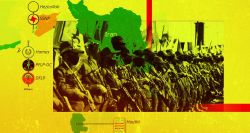
‘Axis of Resistance’ Calculations Come Up Short
Johnny Kortbawi 2025-08-12 20:05 - Reading : 2 minute(s)
Free Patriotic Movement Hezbollah Lebanese Forces
The entire “Axis of Resistance” has a recurring problem with numbers and calculations – a game it has often played and lost, sometimes with almost absurd results. If Hezbollah’s closest ally before its recent distancing to gain favor ahead of the elections – the Free Patriotic Movement (FPM) – cannot get the numbers right, what hope ...
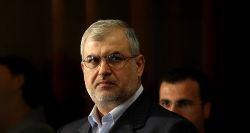
Mohammad Raad’s Misfortunes with Life and Death!
Johnny Kortbawi 2025-08-09 15:35 - Reading : 3 minute(s)
Mohammad Raad has served as a Lebanese MP for over three decades, since the first post-Taïf Parliament in 1992. As head of the Loyalty to the Resistance bloc, which marked Hezbollah’s first parliamentary entry, Raad has witnessed all phases of post-war Lebanon. His combat experience is evident in his speech, marked by a stern expression even in ...
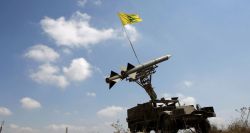
Trading Arms for Power: Hezbollah’s Political Bargain
Johnny Kortbawi 2025-08-05 20:40 - Reading : 2 minute(s)
Nawaf Salam Lebanon Hezbollah United States
The issue of Hezbollah’s weapons is no longer confined to a small elite who once represented a silent majority and feared Hezbollah’s refusal to constructively engage. Today, the weapons file is firmly on the table, openly discussed under sustained Arab and international pressure. The August 5 Cabinet session holds historic significance, on ...

Welcome Back!
Johnny Kortbawi 2025-08-02 20:30 - Reading : 2 minute(s)
Nawaf Salam Hezbollah Middle East Benjamin Netanyahu Washington ortagus
As soon as press leaks emerged suggesting that the Lebanese file was being taken away from US envoy Tom Barrack and handed back to former envoy Morgan Ortagus, a certain optimism resurfaced among the Lebanese. This might be explained by the fact that Ortagus is seen as more than just a US envoy; she has indeed become some kind of celebrity in ...
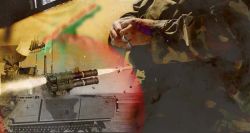
Same Mistakes, Different Times
Johnny Kortbawi 2025-07-29 11:00 - Reading : 3 minute(s)
Lebanese history is marked by a long string of repeated missteps, errors that quietly pile up as the country resists any course correction. They’re the product of a persistent pattern of poor decisions, while entrenched political forces keep trying, in vain, to turn the tide in their favor. Today, Lebanon is repeating a familiar mistake, one ...
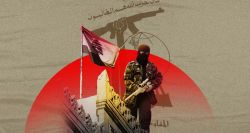
Reluctant Settlements with No Preconditions
Johnny Kortbawi 2025-07-25 15:30 - Reading : 2 minute(s)
Nawaf Salam Hezbollah United States Tom Barrack
Lebanon is in a position few would envy in the current round of settlements. This situation does not stem from a government crisis, but from the dominance of a single party. Had the state itself been responsible for the decisions that brought us here, the outcome—though difficult—might have been more acceptable. Unfortunately, Lebanon is now ...
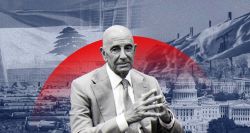
Barrack to Lebanon: Address Your Internal Issues!
Johnny Kortbawi 2025-07-22 09:00 - Reading : 2 minute(s)
Lebanon Hezbollah United States Tom Barrack
Tom Barrack’s third visit to Lebanon warrants a careful reading between the lines—coming, as it does, after Beirut conveyed its message to Washington and received a US response. On his first trip, the US emissary was notably diplomatic and optimistic, speaking at length about Lebanon’s prospects. But that optimism was tempered ...
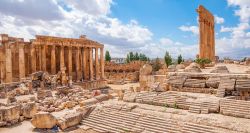
Baalbek: Timeless Heritage and Enduring Vision
Johnny Kortbawi 2025-07-18 15:55 - Reading : 2 minute(s)
Lebanon Baalbek Baalbek Festival
The Baalbek International Festival is far more than a dazzling display of performances and music. Baalbek, with its ancient past and the weight of history etched into its temples, transcends anything a single lifetime could fully comprehend. While the festival carries undeniable historical significance, it is also deeply intertwined with the very ...